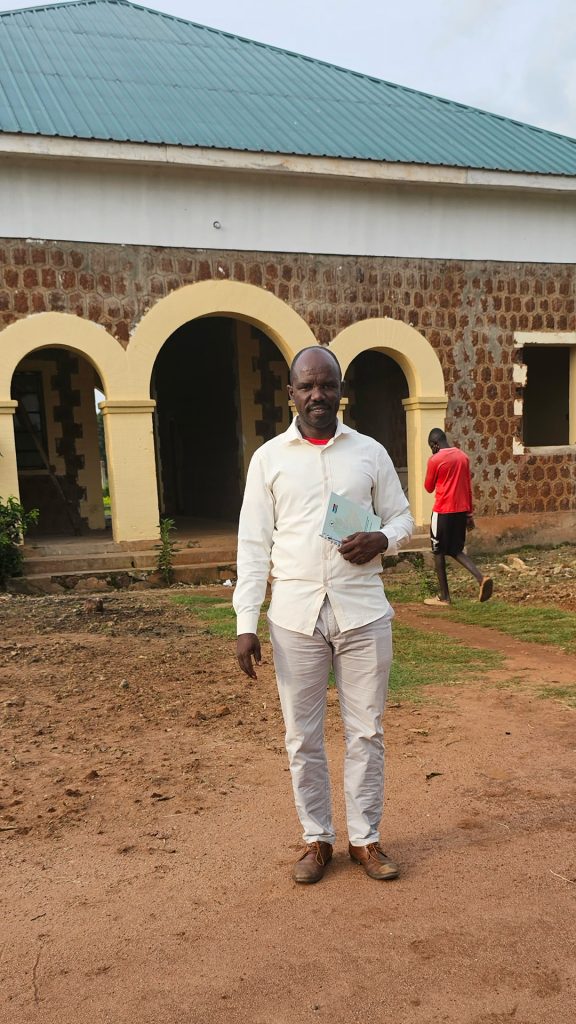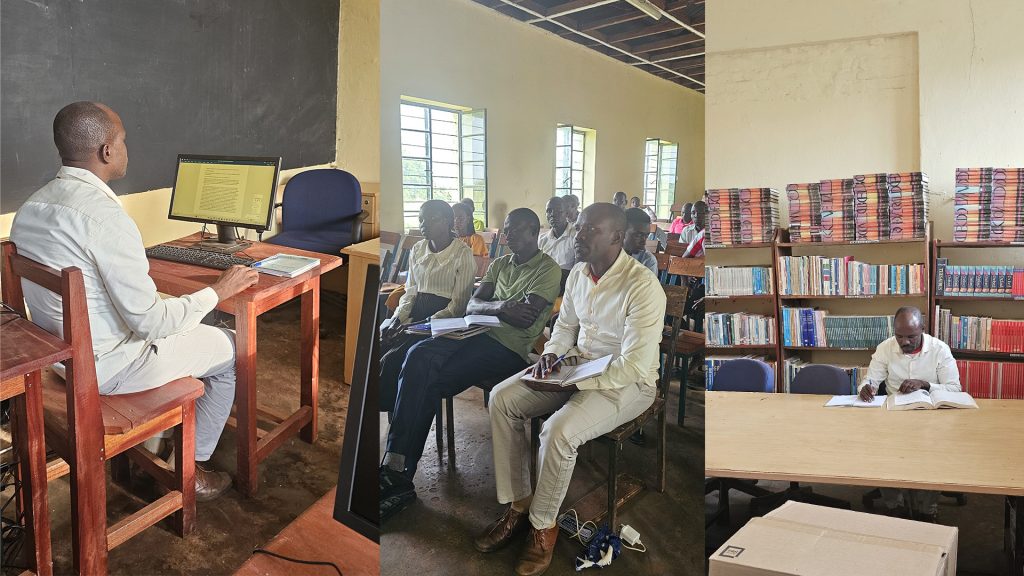What War Couldn’t Take: Mohammed’s Story of Survival and Purpose
After fleeing the war in Sudan, Mohammed is more than a survivor. He is now a teacher-in-training, carrying the lessons of war into a classroom filled with hope.
At 42 years old, Mohammed stands not only as a father of five but as a living symbol of what perseverance looks like in the face of unimaginable loss. His voices hold the weight of wars survived, journeys endured, and dreams delayed but never destroyed.
The war in Sudan isn’t just a conflict. It’s a storm one that tore through homes, families, and entire generations. What began as a political standoff in April 2023 quickly spiraled into a full-blown war, forcing millions of civilians into chaos resulting to one of the world’s worst humanitarian crises. Gunfire replaced laughter. Markets turned to battleground.
As the violence spread, millions of people were displaced within Sudan or forced to flee across its boarders. Many ended up in neighboring countries like South Sudan, Chad, Egypt, and Ethiopia searching for food, safety, and the chance to begin again.
Among them was Mohammed.

But this was not his first flight. His life has been marked by constant movement, not for adventure or ambition, but for survival. “War always found us,’’ he says.
His first displacement came in 2003, when he fled the conflict in Sudan, Darfur Region and crossed into South Sudan. At the time, South Sudan offered a rare promise of peace. He settled in Malakal, Upper Nile State, trying to start over in the unfamiliar rhythm of refugee life. “I lived with hope,” he says, “Hope that one day, I will build something strong for my children.”
But peace is a fragile thing in places scarred by conflict. In 2013, the South Sudan civil war erupted, tearing apart communities and reigniting tensions. Once again, Mohammed found himself fleeing violence. This time, he left Malakal and resettled in Juba. His dreams were disrupted but not destroyed.
Then in 2020, with things stabilizing back in his hometown Darfur, he made a bold decision to return home. “I thought maybe we will find peace again.’ But In 2023, war returned like a cruel joke, displacing him for the third time. This time, he had a wife, children and relatives relying on him, he had to pick them and run again.
They walked for hours, braving exhaustions, hunger, and uncertainty, until they finally reached South Sudan in May 2023. This time he was not running for his life but for his children. “I was not just running for my life,” he says. “I was running for theirs.”
When they finally arrived Gorom Refugee Settlement in the outskirts of Juba, he had nothing but clothes in a bag, his five children, a wife and a heart heavy with trauma.
Education gave Mohammed hope
“I graduated from Primary 7 when I was already an old person, I was 19,” he says with a soft laugh. But there’s pain beneath the humor. School had always been interrupted by war, displacement, and the daily grind of survival. “I started late, but I never stopped learning. Even then. I knew education was my only way out.”
That belief never left him.
Despite the hardship of camp life, where food is rationed and privacy is rare, Mohammed’s dream remained alive. “I want to bring a new mindset to my village,” he says. “Even if it’s in a refugee camp, education can still change lives.”
His passion didn’t go unnoticed. In early 2024, he was among 24 refugees selected by Finn Church Aid to take part in an intensive English language training program. For Mohammed, it was more than just language. It was a door opening, a new chance to build a future not just for himself but for his community.

And then, as the training ended, another opportunity arrived. Finn Church Aid put out a call for volunteer teachers at Godo Primary School in Gorom Refugee Settlement/Juba. Mohammed didn’t hesitate. He applied, and this time, he wasn’t chosen as a learner but as a teacher.
“That was the moment everything changed” he says. “I noticed, even in a refugee camp, I could be someone. I could help others.”
Now, Mohammed is enrolled in a two-year teacher training course at Maridi Teacher Training Institute alongside more than 20 other refugee learners. Every day, he is building the skills that will allow him to become a certified educator, someone who can shape minds and uplift his people from within.
FCA continues to walk with people like him. Among others, he receives monthly incentives, food supplies, and educational resources that allow him to focus on his studies without the looming fear of hunger or homelessness. “FCA has become like my parent,’ he says.
Reflecting over World Refugee Day, Mohammed says: “This day reminds me of what I lost, the people I love. Sometimes, I want to cry. I am a man, but still…:” His voice trails off into silence.
In that silence lies the truth of so many refugees’ stories pain, unspoken, dreams postpone, and resilience quietly burning.
FCA’s support goes beyond individual transformation, it’s part of a broader effort to strengthen the national education system. Through the Ministry of Foreign Affairs of Finland, FCA South Sudan is implementing the Teacher Education South Sudan project in close collaboration with the Ministry of General Education and Instruction (MoGEI), the Maridi National Teachers Training Institute and the University of Juba. The project focuses on pre-service teacher training, aiming to expand access to quality education by equipping aspiring teachers with the skills and knowledge they need to thrive. As part of this initiative, FCA provides essential support to the teacher training institute ranging from food and monthly incentives for bother teachers and support staff, to internet access for the school and student allowances that cover transportation and learning materials.
Text: Kiden Viola